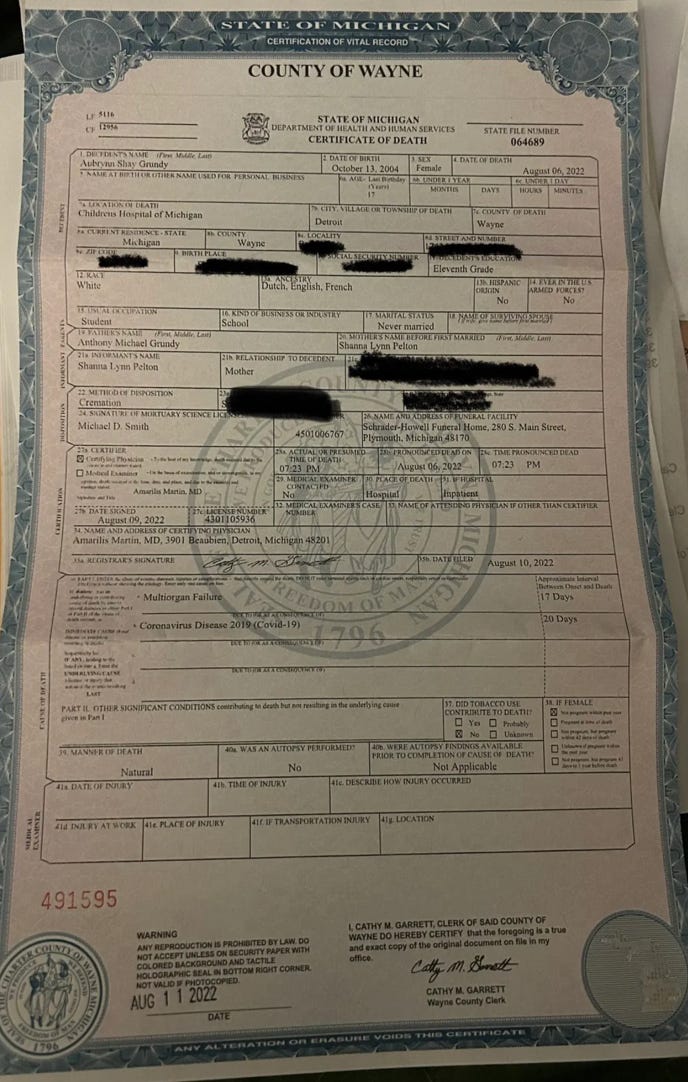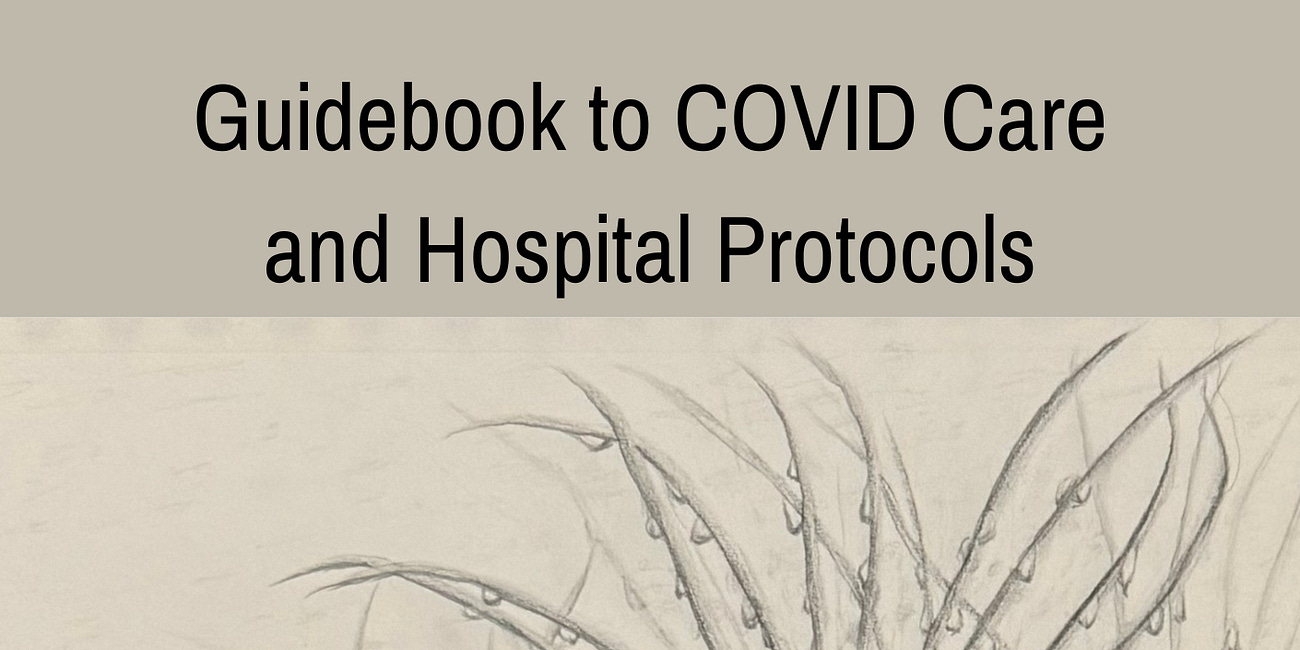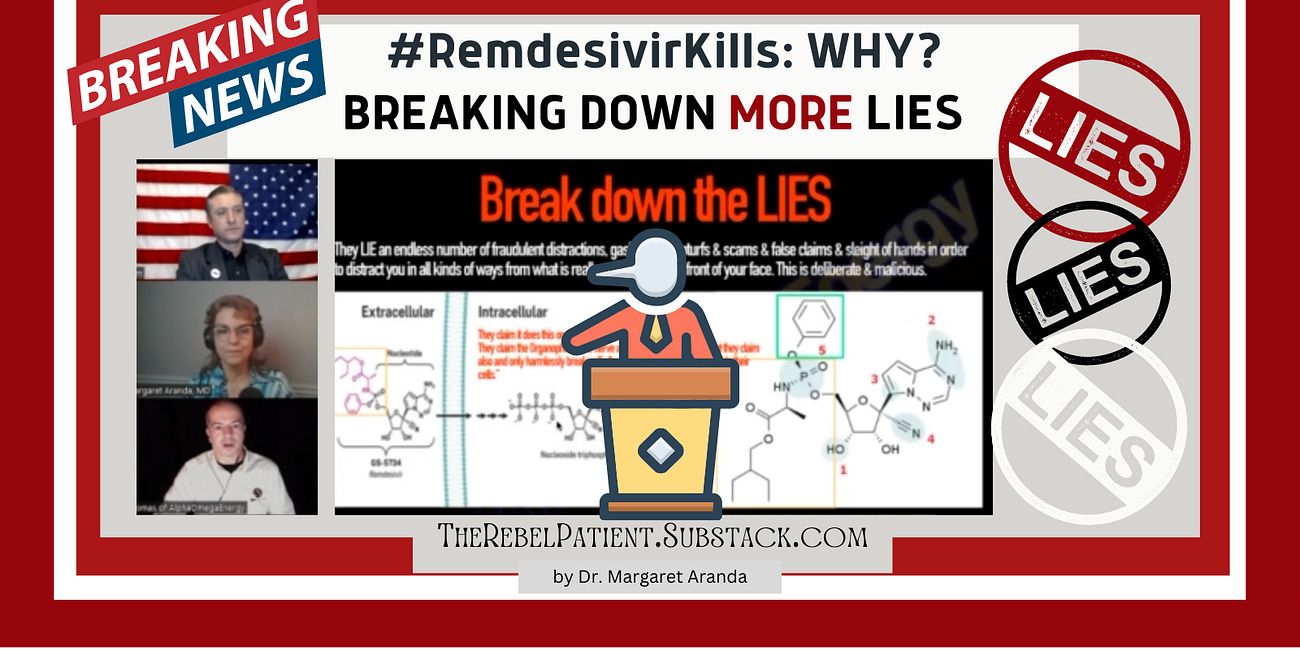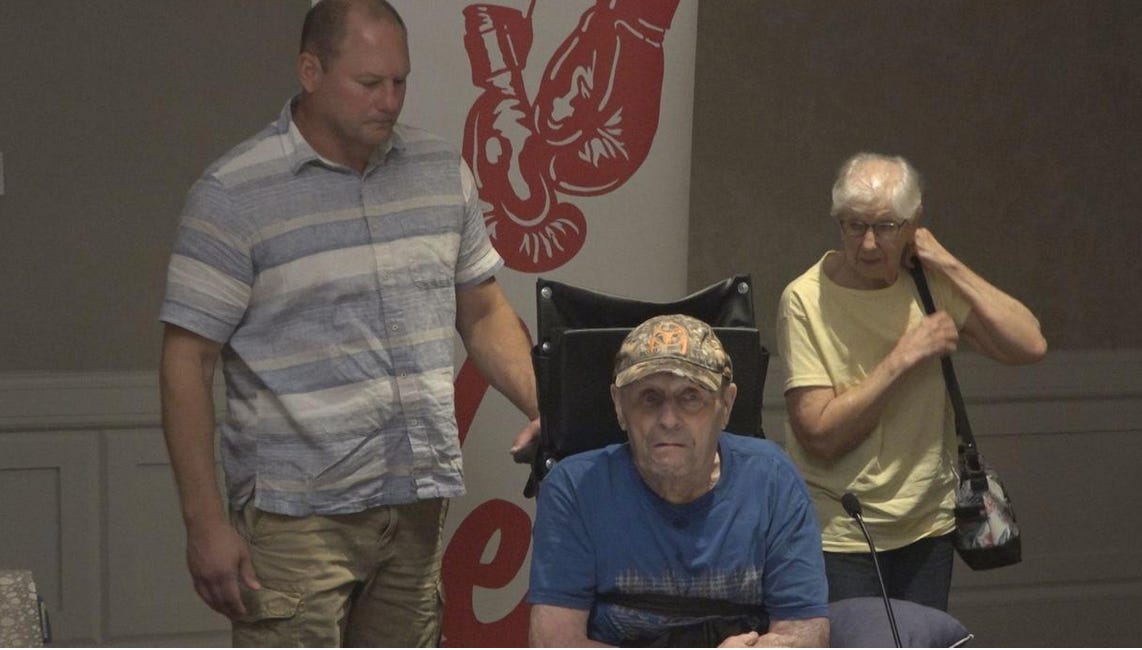A Response to Amalya and the GrowthFactor.Org from A Doctor's Perspective: Comments on The List of Hospital Drugs Used on Aubrynn, Just Prior to Her Death
A response to Amalya's Post Asking Doctors and Nurses to comment on The List
This is my response to Amalya’s request that any doctor or nurse reading this article comment on the drugs used on 17-year old Aubrynn. Since most have not heard of ECMO, I lightly cover it before going over each mentioned drug. .
Please first acquaint yourself with this article by Amalya at GrowthFactor.Org, which includes the voice of Aubrynn's mommy, Shanna Carroll (WARNING: SAD!), as she shines light on this darkness. My response will make much more sense after reading:
As requested regarding each drug given, here is my perspective as an anesthesiologist and intensivist, as a comment on Amalya’s recent post. Please accept my apologies for being scientific. Additionally, I have no access to Aubrynn’s chart, so it is impossible for me to know exactly what her doctors were thinking on some of these drug choices and dosages.
And finally, I would be remiss if I failed to apologize to a parent or loved one who may read my notes below and find them to be dry. I apologize for this and have attempted to use some care in word choices.
In the spirit of sharing information on hospital protocols, I have opened this up to all readers.
ECMO
Of note, few patients survive extracorporeal membrane oxygenation (ECMO), pictured above, to live a fulfilled life. Many are riddled with anxiety, depression, suicidal thoughts, and just 25% are well enough to hold a job.
The ECMO machine bubbles oxygen through the body’s bloodstream and eliminates carbon dioxide, taking the place of both the heart and lungs, respectively.
ECMO is used in the ICU for generally healthy patients who are waiting for a heart, lung, or heart-lung transplantation. The average duration may be about 5 days, but some have survived for 25-30 days on ECMO. On ECMO, patients can die from a blood clot (22% incidence) or a bleed (79% incidence).
If the fingers and toes are turning purple and getting so ischemic (due to a lack of blood flow/oxygen, not necessarily a blood clot, as to warrant amputation, one can surmise that survival without entire limbs (as opposed to just a toe amputation) may not be compassionate or ethical. One has to think that there is probably additional end-organ damage to the heart, gut, kidneys. And given her heart attacks, I don't know how her heart could have ever been able to effectively pump again, unless they were thinking of a heart or a heart-lung transplantation, a common scenario with ECHMO.
Mortality. Bleeding and a severely low platelet count requiring transfusion are common during ECMO. One study cites the mortality of all adult ECMO patients is from 49% - 80%.
In addition to being septic or having cardiogenic shock, Aubrynn may have had both lung and heart failure.
While that seems better than 50:50, it does not take into account the survivor's need for extended and comprehensive rehabilitation. Physical challenges can be significant, with one study showing two-thirds of survivors had at least one psychological or cognitive difficulty, and 25% were unable to return to work.
I've seen ECMO give a lot of false hope and delay death for weeks and even months.
At some point, one cannot help but ask one's self why we do this, and if it is wrong. I've even thought that in a cardiothoracic ICU that does heart and lung transplantations, if they can keep dying patients alive longer and longer, it offsets their statistics and makes it look like fewer deaths occur over time. Then they don't lose their ability to be “on the list” to receive organs.
I would expect that to give Aubrynn every chance of survival, the doctors would be using every imaginable drug in the highest conceivable concentrations, to hit at everything that could be wrong. Using every available antibiotic is #1, to kill all different kinds of bugs: Gram positive, Gram negative, anaerobic, fungi, parasites, everything.
Prescription Drugs
Here is the list of drugs Aubrynn was given prior to her death:
Albuterol
Beta-agonist bronchial dilator; opens lungs to get more oxygen, often given for asthma or wheezing.
Comment: Commonly given when someone is on a ventilator.
Ceftaroline fosamil
A cephalosporin antibiotic active against primarily Gram positive bacteria like MRSA but is a weak antibiotic for Gram negative bacteria.
Comment: Aubrynn should have first started on a broad-spectrum antibiotic effective against both Gram negative and Gram positive bacteria. Sputum or blood cultures should have shown a Gram-positive bug like MRSA to warrant this being the only antibiotic. Some studies show up to a 20% higher fatality rate with MRSA vs non-MRSA infection.
Clindamycin
Alincosamide antibiotic also used for MRSA and effective for endocarditis.
Comment/question: Was this double coverage for MRSA, or did Aubrynn also have heart inflammation? I'm still looking to see if Aubrynn was also on an antibiotic with Gram negative or broad-spectrum coverage.
Dexamethasone
An IV steroid used to combat inflammation and suppress the immune system.
Comment: Methylprednisolone is the most effective steroid against Covid, but few hospitals used it. Usually given after 7-10 days of illness, and not a first line drug for early treatment. Causes gut upset or heartburn, long-term use can cause gut ulcers. The 5 mg dose was given just once a day, both an average dose and frequency that is not very aggressive. Perhaps they gave it for adrenal suppression; I am not sure of their reasoning.
Heparin flush
A blood thinner, heparin flushes are routinely used to prevent IV tubing from forming a blood clot. Here, they also gave it through the extracorporeal machine.
Comment: None.
Hydrocortisone
Used after the initial Covid stage and once in the pulmonary stage to prevent the cytokine storm, this is another steroid. The dose was 25 mg given every 8 hours.
Comment: There were NICE guidelines on Covid-19 steroid treatment using hydrocortisone. Their recommended dose was 50 mg every 8 hours intravenously. If Aubrynn was on this steroid for Covid, it might have been at just half the recommended dose. At any rate, methylprednisolone works better against Covid-associated pneumonia.
All my patients went on methylprednisolone. None of them died. The only two that died went to the hospital and I was no longer their doctor. Both got Remdesivir.
Metronidazole
An antibiotic used for anaerobic bacteria and parasites, as well as sepsis, an overflowing bacterial infection that goes into the bloodstream. Given at 400 mg every 6 hours = 1,600 mg a day.
Comment: Aubrynn may have been on this drug for anaerobic bacterial infection, anaerobic sepsis, or acute diarrhea in the ICU from a suspected Clostridium difficile gut infection.
The usual loading dose of metronidazole is 15 mg/kg IV. After that, traditional dosing is every 8 hours, not to exceed 4 grams or 4,000 mg a day.
It seems Aubrynn’s dose may have been on the lower side.
Micafungin
This is an antifungal agent, given at 100 mg a day.
Comment. A traditional micafungin dose is 100 mg is suitable for Candida albicans and C. glabrata in critically ill patients.
Nitroglycerin Paste
Commonly given in emergency rooms for an acute heart attack or chest pain. Given to dilate the coronary arteries and increase the blood supply to the heart, nitroglycerin (NTG) 2 % ointment was given as a 1-inch paste, three times a day. It is contained in a paste almost exactly like a tube of toothpaste, and one inch is squeezed out of the tube and directly onto the skin, usually onto the upper left chest.
Comment. In American ICUs, we don't use paste; we use IV drips. This way, if the blood pressure goes too low, we can titrate the NTG and even turn it off, if necessary.
Pantoprazole
This proton pump inhibitor (PPI) reduces stomach acid in critically ill, mechanically-ventilated patients and prevents gastrointestinal bleeding from stress-induced stomach or intestinal ulcers. Adverse effects of PPIs include ventilator-associated pneumonia and Clostridioides difficile. The dose given was 40 mg a day.
Comment. Used to prevent a bleeding ulcer in the ICU, and in light of ECMO causing low platelets and additional bleeding problems, this was probably given to minimize bleeding. Maybe they didn't know that the use of PPIs is associated with an increased risk of heart attack, dementia, and kidney failure.
Remdesivir (Veklury)
AKA “Run! Death is near!” or Veklury, Remdesivir was nicely covered by Amalya. Remdesivir kills 54% of ICU patients, and then it looks like “COVID” killed them - to the untrained eye.
HERE IS MY FRIEND DOCTOR ABILIO RAMOS
My friend was a Cuban immigrant and doctor that lost his life to Veklury (Remdesivir). Doctor Abilio Ramos had stage 3 kidney disease, why was he given 5-6 doses at the hospital when they tested for covid? Remdescivir was originally evaluated in clinical trials to thwart the Ebola outbreak in 2014. Later, somehow Gilead became a “SARS-CoV-2 nucleotide analog RNA polymerase inhibitor” on Aug 7 2020 Pfizer when announced agreement with Gilead to Manufacture Remdesivir at their Kansas facility. Remdesivir is formulated with sulfobutylether-beta-cyclodextrin (SBECD) sodium. SBECD is a vehicle that is primarily eliminated through the kidneys. Accumulation of SBECD in patients with renal impairment can result in liver and renal toxicities!!!
Comment. Per the Remdesivir website,
“For patients who are hospitalized and require invasive mechanical ventilation and/or ECMO, the recommended total treatment duration is 10 days.”
Aubrynn should have only received 5 days’ treatment prior to ECMO or ventilation, and then they could extend another 5 days for that scenario. We don't know when it started or stopped, nor what they said to get mom’s informed consent. Did Aubrynn get a Remdesivir overdose? I ask because there's no order for just 5 or 10 days.
Did the hospital get paid for adding Remdesivir? And did they get paid an additional bonus for Aubrynn's death? How about her death certificate?
Did the hospital get paid another bonus for listing COVID 19 as a cause of death?
Is that why they sent a check to the mom, because it was a kickback? And could mom Shannon feel those evil vibrations, such that she refused to accept the dirty money?
Remdesivir, the only FDA-approved medication used for years in hospitalized patients, should be removed from the market. Despite all the deaths, it is STILL on the hospital protocols and STILL causes people to die in the hospital.
I think the most important thing to do is to write your own Medical Directives, have a conversation with your next of kin, and make your wishes known to them- so they can fight for you - or get you out of the hospital.
See my sample Directives for your own state, contained in this article that is always pinned to my Substack. It also includes resources in case you can't get out of the hospital, and how to obtain an unvaccinated blood transfusions:
Guidebook to COVID Care and Hospital Protocols: Updated for January, 2024
To print or view complete PDF download HERE: sign up, create a password, and download the PDF from your email. Remember: If you get COVID or any flu bug, your biggest objective is to stay out of the hospital. The longer you are sick without getting well, the more you are likely to need an Urgent Care or ER.
See below for my Remdesivir-associated articles, including this lawsuit against Gilead Pharmaceuticals:
FILED! Remdesivir Class Action Lawsuit Against Gilead Science Inc. Alleges False Advertising And Negligence
Thank you to my Twitter/X friend @Shea1938, who alerted me to this crucial lawsuit filing. Background Remdesivir is the only FDA-approved antiviral therapy that was used only in hospitalized patients under official protocols that were automated in hospital electronic medical records.
Bottom Line: Stay out of the hospital. Have supplements, ivermectin, and hydroxychloroquine on hand and in your house. And write your Medical Directives.
Sodium Chloride
Comment. Simply ised to stop the IV from clotting.
Total Parenteral Nutrition (TPN)
Comment. We don't see the TON order, so we don't know its composition of protein, carbs, vitamins. But at least they were feeding Aubrynn, which is much more than many others.
There are reports of starvation and water restrictions, with nurses and doctors stopping patients from drinking water- priming the kidneys to fail with Remdesivir.
Active PRN Medications
These were given on an “as needed” basis, not given like the others above, which were given around the clock.
Calcium gluconate
Used to replace a low calcium level.
Comment. None.
Fentanyl 50 mcg per hour
Used for pain management, this is one of the “hospital protocol” medications that has been used to cause an opioid overdose, leaving millions of patients like Grace Schara unable to breathe on their own, causing them to die.
We don't know how often fentanyl was actually given, but this is an extremely narrow window, allowing hourly dosing that theoretically could have been given at the tune of 24 doses/24 hours. If the medical record shows fentanyl was given each hour, it acted like a continuous infusion, not a “prn” medication.
Fentanyl was the only drug the doctors used for Aubrynn's pain, sedation, or anxiety. Some centers have used ECMO on patients who are awake and breathing on their own. Aubrynn was likely to be on both a ventilator and ECMO.
I wish I knew how often she really got a fentanyl dose, and I wish I knew that she had pinpoint pupils, because then I would know that she didn't have too much pain.
I must note that I am relieved that Aubrynn wasn't given any Precedex anesthetic, nor any vecuronium or other drug that causes paralysis. At least I can give the hospital credit for that.
Ocular lubricant
Used on all ventilated patients, to protect the eyes from drying out.
Comment. None.
Potassium chloride
Commonly given to treat a low potassium, 20 mEq is a lower dose.
Comment. This was “unscheduled”, so it really wasn't regularly given.
Sodium chloride
As above, used to keep the IV open and not clotted.
Comment. No comment.
Summary
Because you are reading this now, you won't suffer like Aubrynn's mommy or like Scott Schara, whose daughter Grace was primed for the hospital killing protocols and whom he had to watch die on FaceTime.
Share this article with someone who is in the hospital. Or someone who has a teenager who got the jab(s). Or someone who has leukemia after the jab. They might not appreciate it- they might call you an “anti-vaxxer”, but they'll read it when no one is watching, and that's okay 👌. They will know the truth, and the truth will set them free.
My above Guidebook walks you through the targeting that they do: they look for the disabled, those who are single or elderly, and how to prevent these situations, and most importantly, how to fight back.
Didn't get a chance to read Amalya's article? Here it is:
Additional Remdesivir Articles
BREAKING NEWS: REMDESIVIR HAS A CYANIDE MOLECULE IN IT #RemdesivirKills but Why? Breaking Down the Lies with Thomas from Alpha Omega Energy and Sam Chaney from Weaponized News: See Parts I & II
You have heard many of us say that Remdesivir kills. You have also heard that there are hospital killing protocols that include Remdesivir, or Veklury. LISTEN TO AT LEAST THE PART ONE LECTURE, BECAUSE YOU DESERVE TO KNOW WHY REMDESIVIR MAY KILL, SO THAT YOU CAN EXPLAIN IT TO OTHER PEOPLE - ESPECIALLY IN TERMS OF WHAT THE GOVERNMENT SAYS ABOUT “HOW IT WORKS”.
Michigan Man is Suing Remdesivir Manufacturer Gilead Sciences, Inc., and Washtenaw County Hospital, After Suffering Two Massive Strokes Due to Drug Contamination with Glass Particles
Once admitted from the Emergency Room in November of 2021 to a Michigan hospital, patient Dan Nowacki was given two doses of EUA-approved Remdisivir also known as veklury, the only FDA-approved treatment for hospitalized patients with COVID. The Rebel Patient™ is a reader-supported publication. To receive new posts and support my work, consider becoming a free or paid subscriber.
And then they opened up Remdesivir use to OUTPATIENTS, and to those with KIDNEY or liver failure 😨 🤷♀️
The FDA Approves Gilead Science's Remdesivir for All Stages of Kidney Disease including Dialysis, and Removes Precaution to Check for Bleeding and Liver Damage Before and During Use
In an incredible and in-your-face move, on July 14, 2023, the FDA quietly approved Gilead’s Veklury (AKA remdesivir or RUN DEATH IS NEAR) for Covid-19 patients who have severe renal impairment. It is now approved for patients who are either 1) hospitalized or 2) not hospitalized but at high risk for COVID sequelae or death; and 3) does not require labs to check for bleeding or liver damage prior to or during use.
WHAT I REALLY THINK
They're still doing it.
Keep reading with a 7-day free trial
Subscribe to The Rebel Patient™ to keep reading this post and get 7 days of free access to the full post archives.















